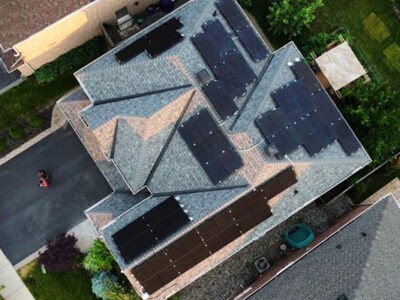THE GUARDIAN: Panasonic criticizes ‘damaging’ cuts to solar panel subsidies
Panasonic, one of the world’s largest electronics companies, has urged the UK government to think again about its plans to cut subsidies for homeowners who install solar panels. The Japanese company, which is a major supplier of solar panels in Britain, said it normally tried to avoid intervening in political decisions but could not stand by and watch the industry being attacked.
Amber Rudd, the energy and climate change secretary, said 10 days ago that she would consult on plans to reduce financial support for solar energy installations in a bid to ease the burden on bill payers. Daniel Roca, the UK country manager for the solar division of Panasonic, urged ministers to think again about their proposals, which involve some feed-in tariff subsidies (Fits) being cut by almost 90%.
MARKET WATCH: The solar-panel market is ready to heat up
The solar market hasn’t been doing so hot. But the market for solar panels could start heating up soon.
Falling prices for industrial commodities used to make solar panels, as well as expectations for higher prices for natural-gas and electricity, could boost the solar panels’ appeal to investors and consumers. If those prices remain at current levels, market watchers say, component prices will fall, making solar projects more financially attractive. That could reignite the solar space, which has undergone a recent spate of weakness.
Aptly listed under the ticker symbol “TAN” TAN, -2.32% the Guggenheim Solar exchange-traded fund has dropped more than 12% year to date. Among the ETF’s top 10 holdings, shares of First Solar Inc. FSLR, -2.80% have gained 8.2% year to date after dropping more than 18% last year, while SolarCity Corp. SCTY, -1.41% lost about 6.7% this year, looking set to extend a nearly 6% decline in 2014.
FORBES: Solar Industry Admits Green Energy Only Exists Thanks To Government Subsidies
For at least the last thirty years the alternative energy industry has been claiming they are almost ready to be economically competitive with fossil fuel. Wind, solar, geothermal, and others keep begging for government subsidies to help them stay afloat until they can reach a size at which economies of scale kicks in, price per kilowatt hour drops, and then they can survive on their own. Now we are seeing this has been a blatant grab for taxpayer dollars and the subsidies were more about industry executives and shareholders getting rich than about reaching a green industry future.
For the past few years the United States has received a veritable flood of cheap Chinese solar panels, dropping costs by 99 percent over 36 years. According to the industry itself, solar installations have increased by a factor of 60 since just 2006 and for the first nine months of 2014 solar represented 32 percent of newly installed electric generating capacity.
COMPUTER WORLD: Solar windows can power buildings
Manhattan has approximately 47,000 buildings with around 10.7 million windows, according to a 2013 estimate from The New York Times. Now imagine if just 1% — or 100,700 — of those windows could generate electricity through transparent photovoltaics.
That’s the idea behind solar power windows, and at least two companies are hoping to sell the technology to window manufacturers, saying once installed in a building the technology will pay for itself in about a year. “If you look at the glass that’s manufactured worldwide today, 2% of it is used for solar panels; 80% of it is used in buildings. That’s the opportunity,” said Suvi Sharma, CEO of solar panel maker Solaria.
















Comments